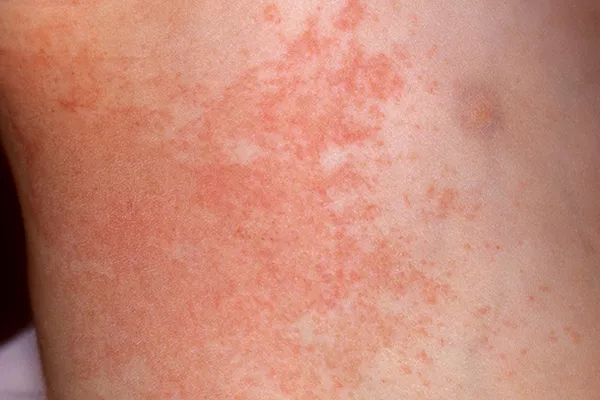Eczema, also known as atopic dermatitis, is a common skin condition characterized by inflammation, itchiness, and redness of the skin. While eczema can occur year-round, many individuals experience fluctuations in their symptoms based on seasonal changes. Seasonal eczema refers to the variation in eczema symptoms that correlate with specific times of the year, such as winter or summer. Understanding the triggers and patterns of seasonal eczema is crucial for effective management and relief. This article explores the causes, symptoms, and management strategies for seasonal eczema.
Understanding Eczema and Seasonal Flare-ups
Eczema is a chronic condition that affects people of all ages but is most common in infants and children. It often involves a combination of genetic, immune, and environmental factors. The skin of individuals with eczema tends to be more sensitive and prone to inflammation due to a compromised skin barrier.
Seasonal eczema occurs when certain environmental factors exacerbate eczema symptoms during particular times of the year. These triggers can vary widely depending on the season and individual sensitivity. Understanding the seasonal patterns of eczema can help in identifying and managing these triggers effectively.
Common Triggers for Seasonal Eczema
1. Winter Eczema:
Winter is a challenging season for individuals with eczema due to the cold, dry air. Low humidity levels indoors and frequent use of central heating can further dehydrate the skin, leading to increased sensitivity and irritation. Additionally, cold winds and harsh weather conditions can damage the skin barrier, making it more susceptible to flare-ups.
2. Summer Eczema:
Summer can also trigger eczema symptoms, albeit through different mechanisms. High temperatures and humidity levels can cause sweating, which may aggravate eczema by increasing itchiness and irritation. Exposure to sunlight can also be a factor, as some individuals with eczema find that sunburn or excessive sun exposure worsens their symptoms.
3. Allergens and Pollens:
Seasonal allergies to pollen from trees, grasses, and weeds can exacerbate eczema symptoms in certain individuals. Pollen counts are typically higher during spring and fall, making these seasons particularly challenging for those with eczema and allergies.
4. Indoor Allergens:
Indoor triggers like dust mites, pet dander, and mold can also contribute to seasonal eczema. Spending more time indoors during colder months can increase exposure to these allergens, leading to flare-ups.
Symptoms of Seasonal Eczema
The symptoms of seasonal eczema are similar to those of eczema in general but may vary in intensity and frequency based on seasonal triggers. Common symptoms include:
- Dry, scaly skin
- Redness and inflammation
- Itching, which can be severe
- Cracking or weeping of the skin
- Rough or leathery patches of skin
The specific symptoms experienced during seasonal flare-ups can depend on the individual’s triggers and the severity of their eczema.
Managing Seasonal Eczema
Managing seasonal eczema involves identifying triggers and adopting strategies to minimize exposure and soothe the skin. Here are some effective management techniques:
1. Moisturize Regularly:
Keeping the skin well-hydrated is essential, especially during dry seasons like winter. Use thick, fragrance-free moisturizers immediately after bathing to lock in moisture.
2. Avoid Triggers:
Identify and avoid triggers that exacerbate eczema symptoms. This may include certain fabrics, harsh soaps or detergents, and specific foods.
3. Use Humidifiers:
In winter, using a humidifier can help maintain indoor humidity levels, preventing excessive drying of the skin.
4. Wear Appropriate Clothing:
Dress in soft, breathable fabrics like cotton to minimize irritation. In winter, layer clothing to stay warm without overheating.
5. Manage Allergies:
If seasonal allergies contribute to eczema flare-ups, consider allergy medications or treatments recommended by a healthcare professional.
6. Practice Sun Protection:
Use sunscreen to protect against sunburn, and avoid prolonged sun exposure during peak hours if sunlight triggers eczema.
7. Consult a Dermatologist:
For severe or persistent seasonal eczema, consult a dermatologist. They can prescribe topical treatments or recommend other interventions to manage symptoms effectively.
Conclusion
Seasonal eczema presents unique challenges to individuals living with this condition. By understanding the triggers and symptoms specific to each season, individuals can take proactive steps to manage their eczema effectively and enjoy improved skin health year-round. From lifestyle adjustments to targeted skincare routines, a personalized approach to managing seasonal eczema can make a significant difference in symptom control and overall quality of life. If you or someone you know is struggling with seasonal eczema, consult a dermatologist for tailored advice and treatment options. With proper care and management, seasonal eczema can be effectively controlled, allowing individuals to lead comfortable and itch-free lives regardless of the time of year.
Related Topics:



























